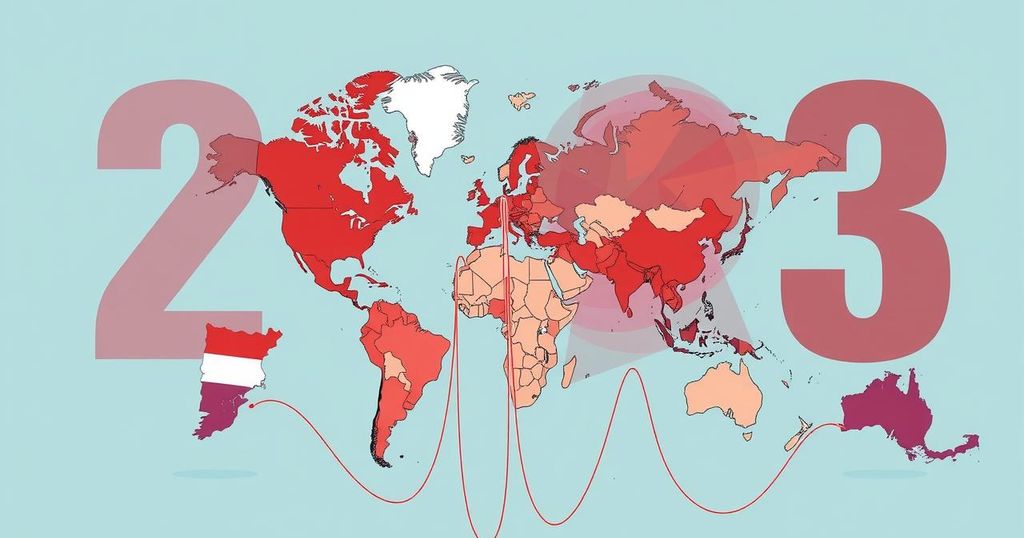Global Elections 2024: A Year of Discontent and Democratic Challenges

The 2024 global elections resulted in significant electoral upheavals, with disenchanted voters rejecting incumbents amid economic difficulties and social unrest. High inflation and widespread dissatisfaction sparked notable political changes in numerous democracies, while authoritarianism gained ground. Allegations of foreign influence and electoral manipulation complicated the situation further, indicating a tumultuous landscape for democracy moving forward.
In 2024, global elections witnessed a significant wave of voter discontent leading to the ousting of numerous incumbents across approximately 70 nations, representing half of the world’s population. The elections reflected widespread dissatisfaction with economic instability, high inflation, and social unrest stemming from the effects of the COVID-19 pandemic and geopolitical conflicts, including Russia’s aggression against Ukraine. Prominent political shifts occurred in major democracies such as India, the United States, and the United Kingdom, where long-standing ruling parties faced significant electoral defeats.
Throughout the year, authoritarian movements gained traction alongside the electoral upheaval, particularly in countries like South Korea, Romania, and Mozambique, where political unrest and allegations of electoral interference heightened tensions. In the European Union, far-right parties emerged stronger amidst the electoral chaos, while long-established political families witnessed rising challenges against their dominance, evident in elections across South Asia and Europe. The implications of these electoral outcomes raise concerns regarding the overall health of democracy globally and the growing polarization within electorates.
The backdrop of the 2024 elections is deeply rooted in global challenges, including economic disruptions due to high inflation, which many attribute to the ongoing conflict in Ukraine. The pandemic induced lasting negative effects on public health, education, and economic stability, leading to decreased satisfaction among citizens with their respective governments. Additionally, allegations of foreign interference, particularly by Russia and its allies, have further complicated the democratic landscape, suggesting that the integrity of electoral processes has been severely tested in numerous instances.
In summary, 2024 was marked by a turbulent electoral year that saw incumbents facing unprecedented challenges across the globe. Voters expressed a clear desire for change amid economic strife and dissatisfaction with governance, contributing to the rise of populist and far-right movements. As nations continue to grapple with the consequences of political instability, the commitment to democratic ideals will be tested in the years to come, reflecting citizens’ expectations against the realities of governance.
Original Source: dailyjournal.net








